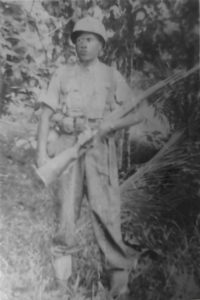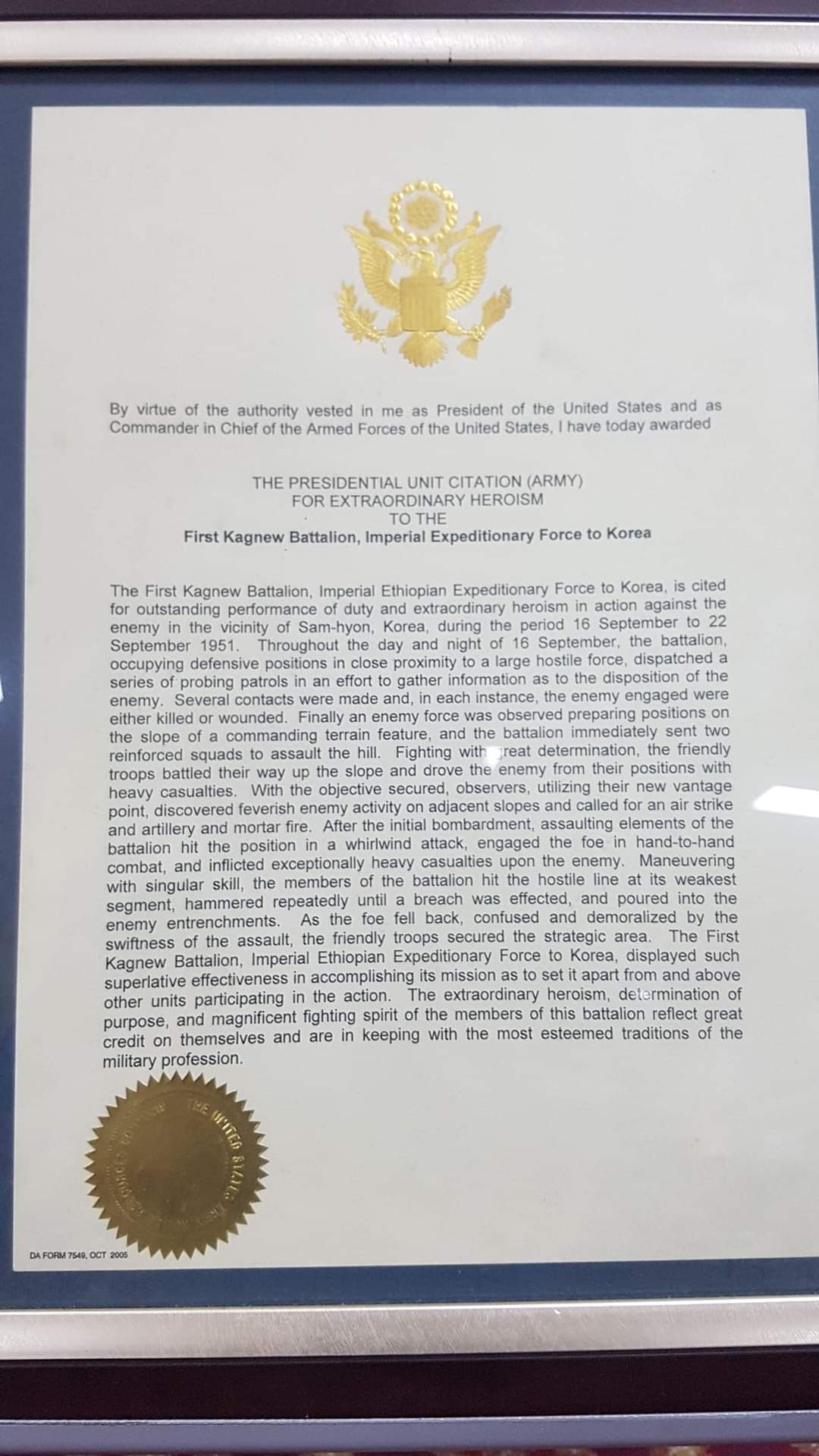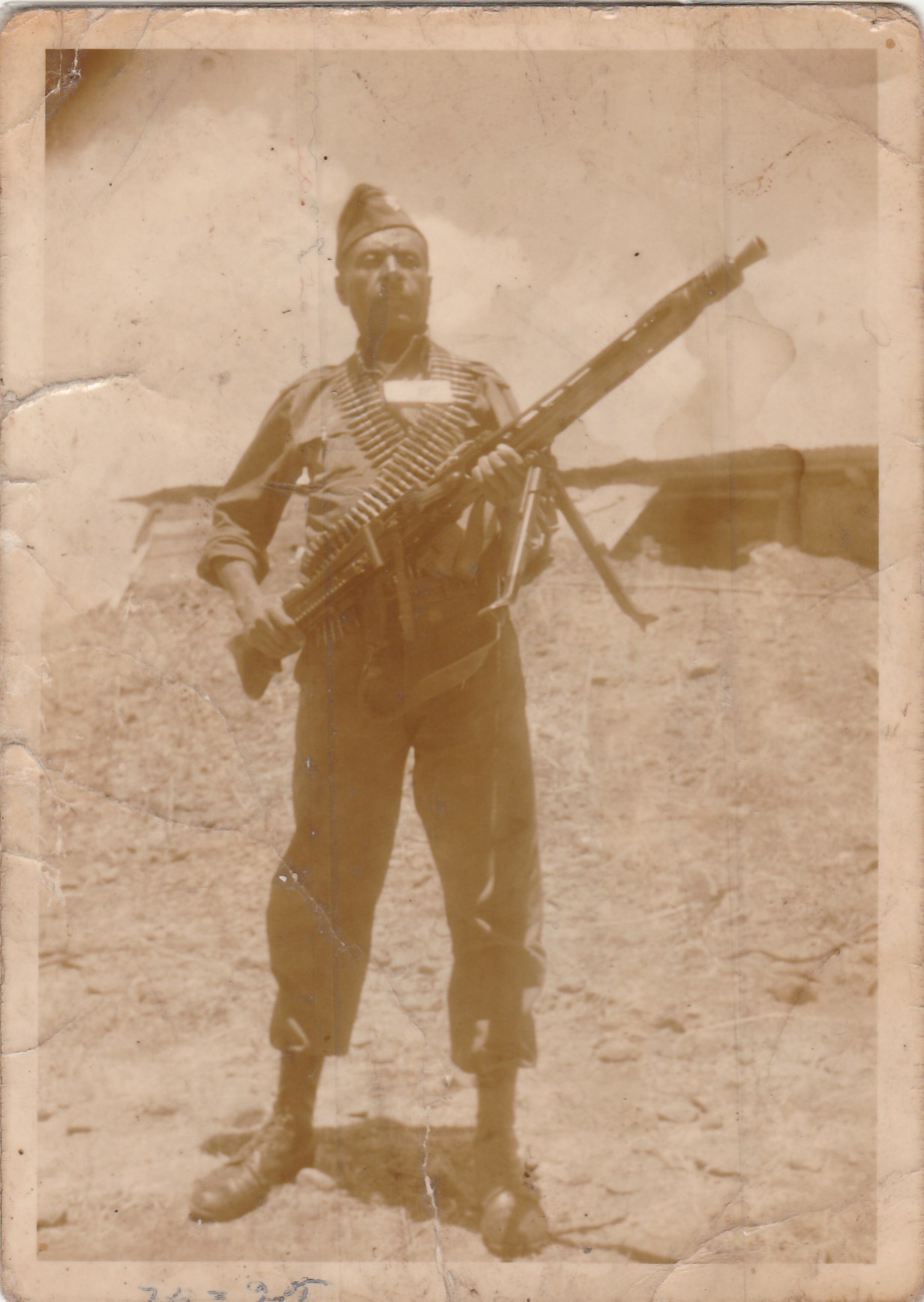
HUNDE JAWI ROBELE
When the UN Secretary-General asked for military assistance to South Korea in July 1950, since Ethiopia was strictly remonstrating atrocity invaders and in accordance with the covenant concluded in the United Nations, and when the honorable guard established for a second time and while performing military service, King Haile Selassie sent selecting some 1,200newly organized soldiers of one battalion to Korea.
All of the selected Ethiopian forces were Royal Guards, rather than combatants. King Haile Selassie named the battalion Kagnew meaning, meaning it was difficult to penetrate or to make a fatal hit. The Kagnew Battalion, led by Lieut. Colonel Kebbede Guebre arrived in Pusan on May 6, 1951.
Upon arrival in Korea, the Ethiopian soldiers then moved to the UN camp in Dongrae where they were supplied with American equipment and given eight weeks of basic military adaptation training and armed with US equipment. It took quite a long time for the soldiers to adapt to a new modern weapons system and unfamiliar tactics, but they were quite enthusiastic about their training.
Three days after the Ethiopian Battalion was committed to the front, they had the first engagement with the Chinese forces at Bongdangdeokri in the Hwacheon area. They won the 4-hour battle, and through the battle, the Ethiopian soldiers came to have confidence in combat. After that, they played a part in blocking the Chinese attack in the central forward area.
According to MPVA
The battle of Jeokgeun Mt. Samhyun (Hill 700ã 602,1951.9.21~22), was the battle in which the Ethiopia Battalion attacked Hill 700 and Hill 602, outposts of the Chinese Communist 200th Division, it was facing while defending the main defense line located in the west of Jeokgeun Mt. It captured Hill 700 on the first day of the attack but not Hill 602. On the second attack, it captured Hill 602 after a fierce battle and destroyed defense facilities built on these two hills before returning.
The Ethiopian 1st Battalion, which had been attached to the US 7th Division, engaged in a fierce battle for the first time on August 12, 1951. Thereafter, the 1st Battalion dispatched platoon or company-size reconnaissance units several times. They destroyed the enemy’s outposts, contributing to the operation of the 7th Division.
When the US 9th Corps in the mid-east front launched an operation to secure an advanced base to attack Keumsong, the Ethiopian Battalion also initiated an attack and occupied Hill 700 near Samhyon on September 21. They occupied Hill 602 the next day with artillery and air-fire support. In this combat, the enemy suffered 179 deaths. Later on, the “First Kagnew Battalion, Imperial Expeditionary Force to Korea” was awarded a citation by the US President for their achievements,(a picture of the award is attached below). On March 28, 1952, the “1st Kagnew” Battalion returned home.
Corporal Hunde Jawi, ( Korean War Service number: 122 and Ethiopian Korean War Veterans Association number 2389) has appropriately carried out his military obligation by deploying alongside the 1st “Kagnew” Battalion, Imperial Expeditionary Force to Korea, and with fellow soldiers sent to Korea for the first time in 1951 and upon his return, he and his fellow soldiers were received a hero’s welcome.
Source:
Most texts are adopted from MPVA, and some are from the Short life history document of CPL. Hunde Jawi, accssed from EKWVA, Ethiopian Korean War Veterans Association, and some information collected from families.
Kind regards:
Jawi Merhawi Hunde (Media and Communication M.A Student at Hallym University, South Korea, Theses title: Media representations of Korean War veterans: Framing Analysis of Newspapers The Korean Times and The Korean Herald.
To reach the son of Korean War Veteran Hunde Jawi, please use the following E-mail: merhawihunde61@gmail.com Or gideymarkos@gmail.com
Corporal Hunde Jawi Robele's Short Life History
Corporal Hunde Jawi, (Korean War Service number: 122 and Ethiopian Korean War Veterans Association number 2389) appropriately carried out his military obligation by deploying alongside the 1st “Kagnew” Battalion fellow soldiers sent to Korea for the first time in 1951
When the UN Secretary-General asked for military assistance to South Korea in July 1950, since Ethiopia was strictly remonstrating atrocity invaders and in accordance with the covenant concluded in the United Nations, and when the honorable guard was established for the second time and while performing military service, King Haile Selassie sent selecting some 1,200newly organized soldiers of one battalion to Korea.
All of the the selected Ethiopian forces were Royal Guards, rather than combatants. King Haile Selassie named the battalion Kagnew meaning, Being difficult to penetrate or to strike a fatal hit. The Kagnew Battalion, led by Lieut. Colonel Kebbede Guebre arrived in Pusan on May 6, 1951.
Upon arrival in Korea, the Ethiopian soldiers then moved to the UN camp in Dongrae where they were supplied with American equipment and given eight weeks of basic military adaptation training and armed with US equipment. It took quite a long time for the soldiers to adapt to a new modern weapons system and unfamiliar tactics, but they were quite enthusiastic about their training.
Three days after the Ethiopian Battalion was committed to the front, they had the first engagement with the Chinese forces at Bongdangdeokri in the Hwacheon area. They won the 4-hour battle, and through the battle, the Ethiopian soldiers came to have confidence in combat. After that, they played a part in blocking the Chinese attack in the central forward area.
According to MPVA
The battle of Jeokgeun Mt. Samhyun (Hill 700ã 602,1951.9.21~22), was the battle in which the Ethiopia Battalion attacked Hill 700 and Hill 602, outposts of the Chinese Communist 200th Division, it was facing while defending the main defense line located in the west of Jeokgeun Mt. It captured Hill 700 on the first day of the attack but not Hill 602. On the second attack, it captured Hill 602 after a fierce battle and destroyed defense facilities built on these two hills before returning.
The Ethiopian 1st Battalion, which had been attached to the US 7th Division, engaged in a fierce battle for the first time on August 12, 1951. Thereafter, the 1st Battalion dispatched platoon or company-size reconnaissance units several times. They destroyed the enemy’s outposts, contributing to the operation of the 7th Division.
When the US 9th Corps in the mid-east front launched an operation to secure an advanced base to attack Keumsong, the Ethiopian Battalion also initiated an attack and occupied Hill 700 near Samhyon on September 21. They occupied Hill 602 the next day with artillery and air-fire support. In this combat, the enemy suffered 179 deaths. Later on, the “First Kagnew Battalion, Imperial Expeditionary Force to Korea” was awarded a citation by the US President for their achievements,(a picture of the award is attached below). On March 28, 1952, the 1st Battalion returned home.
Corporal Hunde Jawi, (Korean War Service number: 122 and Ethiopian Korean War Veterans Association number 2389) has appropriately carried out his military obligation by deploying alongside the 1st “Kagnew” Battalion fellow soldiers sent to Korea for the first time in 1951 and upon his return, he and his fellow soldiers were received a hero’s welcome.
On his return from Korea, he was chosen for the second time for his military career, and he was again sent to Congo for peacekeeping in 1960 he was a valiant soldier. The medals and trophies of honor presented to Corporal Hunde Jawi during his military service: 1. The 1st Imperial Majesty Haile Selassie Korea memorial Gold medal 2. The 1st Imperial Majesty Korea Memorial Silver medal 3. Service medal of 15 years 4. Emperor Menelik II’s long-term service military medal 5. United Nations Korean Memorial Medal 6. Korean Memorial Medal from the Korean government 7. Congo’s Peacekeeping Medal 8. Congo’s Peacekeeping medal from United Nations 9. Joint feat medal unit citation from the government of Korea 10. Joint feat medal unit citation from United Nations 11. Warrior insignia from the Ethiopian government. Corporal Hunde Jawi has begotten two girls and two boys total of four children from his legal wife. Since death is inevitable, we do hereby notify you that he passed away on 17/01/2006 due to the ailment that befell him at 81st years old.
Source:
Most texts are adopted from MPVA, and some are from the Short life history document of CPL. Hunde Jawi, accssed from EKWVA, Ethiopian Korean War Veterans Association, and some information collected from families.

Comments
Likes 1
You must be a registered user to comment or like - please register to join us!
Korean War - Key Events
April 25, 1951
Vastly outnumbered UN forces check the Chinese advance on Seoul at the Battles of Kapyong and the Imjin River. Two Commonwealth battalions—the 2nd Battalion of the Princess Patricia’s Canadian Light Infantry Regiment and the 3rd Battalion of the Royal Australian Regiment—rebuff an entire Chinese division at Kapyong, and 4,000 men of the British 29th Brigade stage a successful delaying action against nearly 30,000 troops of the Chinese 63rd Army at the Imjin River. Some 650 men of the 1st Battalion, the Gloucestershire Regiment (the “Glorious Glosters”), engage in a Thermopylae-like stand against more than 10,000 Chinese infantry at Imjin. Although the overwhelming majority of the Glosters are killed or captured, their sacrifice allows UN forces to consolidate their lines around the South Korean capital.
These events are taken from the Encyclopedia Britannica




Comments
Likes 2
You must be a registered user to comment or like - please register to join us!